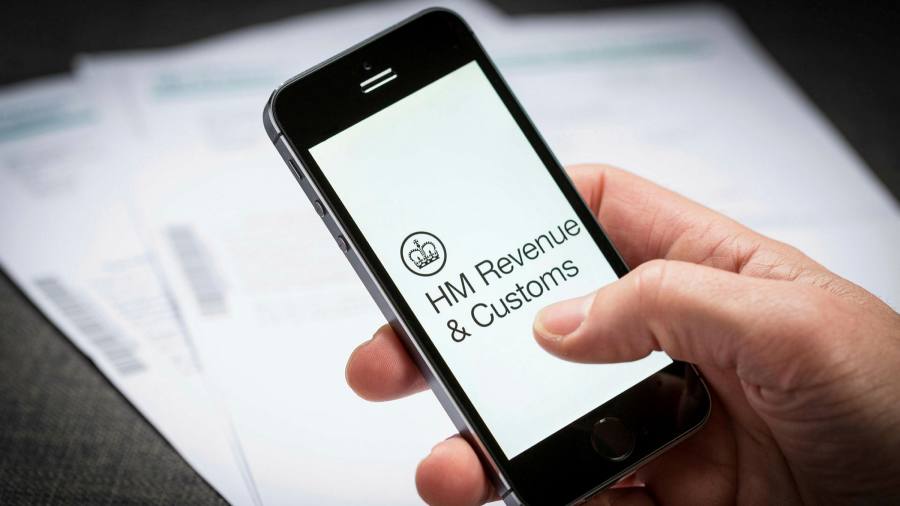[ad_1]
Controversial changes to tax rules affecting hundreds of thousands of contractors, and the firms that hire them, are due to come into effect from April after being delayed for a year because of the pandemic.
What are the changes?
Under changes to the “off-payroll working†rules, often known as “IR35â€, medium and large-sized businesses will be responsible for assessing the tax status of every contractor they hire. Currently, freelancers who bill for their services via a limited company decide themselves whether they are employed or self-employed for tax purposes.
The reforms have been designed to crack down on tax avoidance by people whom HM Revenue & Customs considers to be “disguised employeesâ€. These are contractors who work like regular employees but, because they use a limited company, gain an advantage by paying corporate rather than employment taxes.
HMRC estimates that only one in 10 people in the private sector who should be paying tax under the current IR35 rules is doing so correctly.
Under the changes, hiring companies will need to prove they have taken “reasonable care†to assess their contractors.
If a company fails to take reasonable care and HMRC finds a contractor has been wrongly classified, the company and any others involved in the contractor labour supply chain, will potentially be liable for unpaid tax.
All companies will be required to apply the new rules, with an exemption for small enterprises with fewer than 50 employees or less than £10.2m annual turnover.
Why are the plans controversial?
The changes have drawn sharp criticism from business groups, contractors and some tax professional bodies for being complex and costly for companies to follow and for tying freelancers and hirers in red tape and disputes.
Rishi Sunak, the chancellor, responded to criticism about the changes last year by promising HMRC would take a “light touch†approach to enforcement during the first year. He also pushed back the start date of the changes from April 2020 to this April, in recognition of the pressure caused by the pandemic.
HMRC has recently confirmed it will not charge penalties to companies that make genuine, non-deliberate mistakes during the first year. The tax office has also promised to take a “supportive approach to help organisations comply with the new rulesâ€. It has pledged not to use information gleaned from the new regime to open inquiries into contractors’ previous tax returns “unless there is reason to suspect fraud or criminal behaviourâ€.
However, this has not reassured everyone. Dave Chaplin, chief executive of the ContractorCalculator advice website and a campaigner against the IR35 reforms, believes there is a “huge opportunity for HMRC to look back at contractor’s previous position, as they’ve only got to have a suspicion of fraudâ€.
Emma Rawson, technical officer at the Association of Taxation Technicians, a professional body, added that there were lingering concerns about the practical side of compliance with the rules. These included whether firms were taking reasonable care to classify contractors and if the free assessment tool HMRC has developed to help, Check Employment Status for Tax (CEST), can “be relied on to give the right answerâ€.
Latest figures show the CEST tool was used 119,364 times in February and was unable to deliver a verdict in only 25,004 cases — 21 per cent of the time.
Others are also worried about what impact the reforms will have on the UK’s flexible workforce.
“If you overlay the confusion caused by IR35 with the pandemic it feels like a perfect storm,†said Matt Fryer, head of legal services at Brookson Legal. “It could lead to a shrinking of talent at a point the UK needs to be firing on all cylinders.â€
How can contractors prepare?
Advisers specialising in IR35 report a mixed picture on how well prepared hiring firms and agencies businesses are. Seb Maley, chief executive of Qdos, which provides tax advice, said while many were doing the right thing, there were still a lot “who haven’t done anythingâ€.
A survey of 1,600 contractors released this month by IPSE (the Association of Independent Professionals and the Self Employed) found nearly one in four contractors (24 per cent) said their clients were either uncertain or had made no indication of how they would respond to the IR35 changes.
The same percentage said clients were planning to blanket-assess all their contractors as eligible for IR35 and 8 per cent of respondents said their clients were planning to cease engaging contractors altogether.
Andy Chamberlain, director of policy at IPSE, also reminds contractors they can challenge the client’s determination if they believe it to be incorrect.
Meanwhile, if a client requires a contractor to use an umbrella company due to the reforms, Chaplin suggests they thoroughly research these. Umbrella companies work by collecting a worker’s earnings from their hiring firm or recruitment agency and then paying it to them after deducting tax and national insurance. Many businesses are legitimate, but the industry is unregulated.
IPSE urges contractors to chose from umbrellas that have been accredited by bodies such as the Freelancer & Contractor Services Association and treat with suspicion any umbrella that claims to offer increased take-home pay, as these could be tax avoidance schemes.
[ad_2]
Source link





